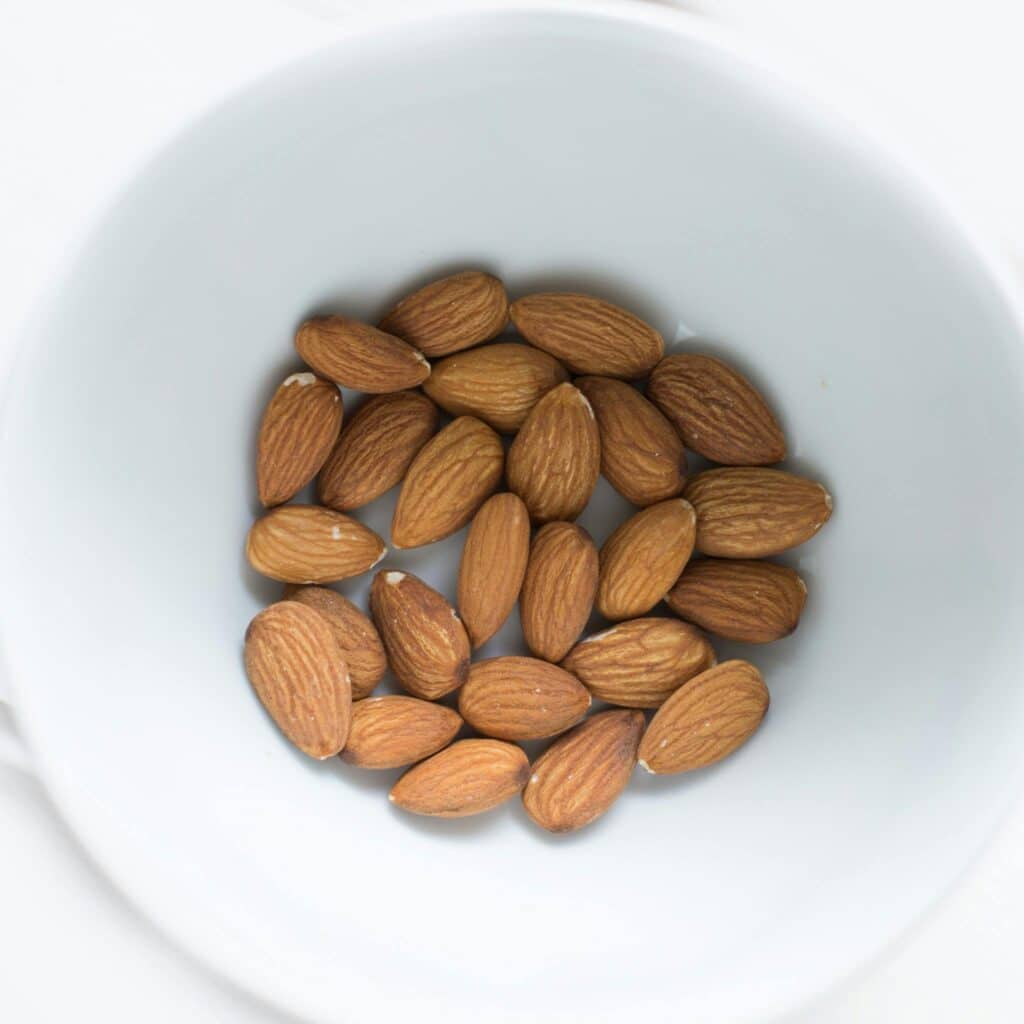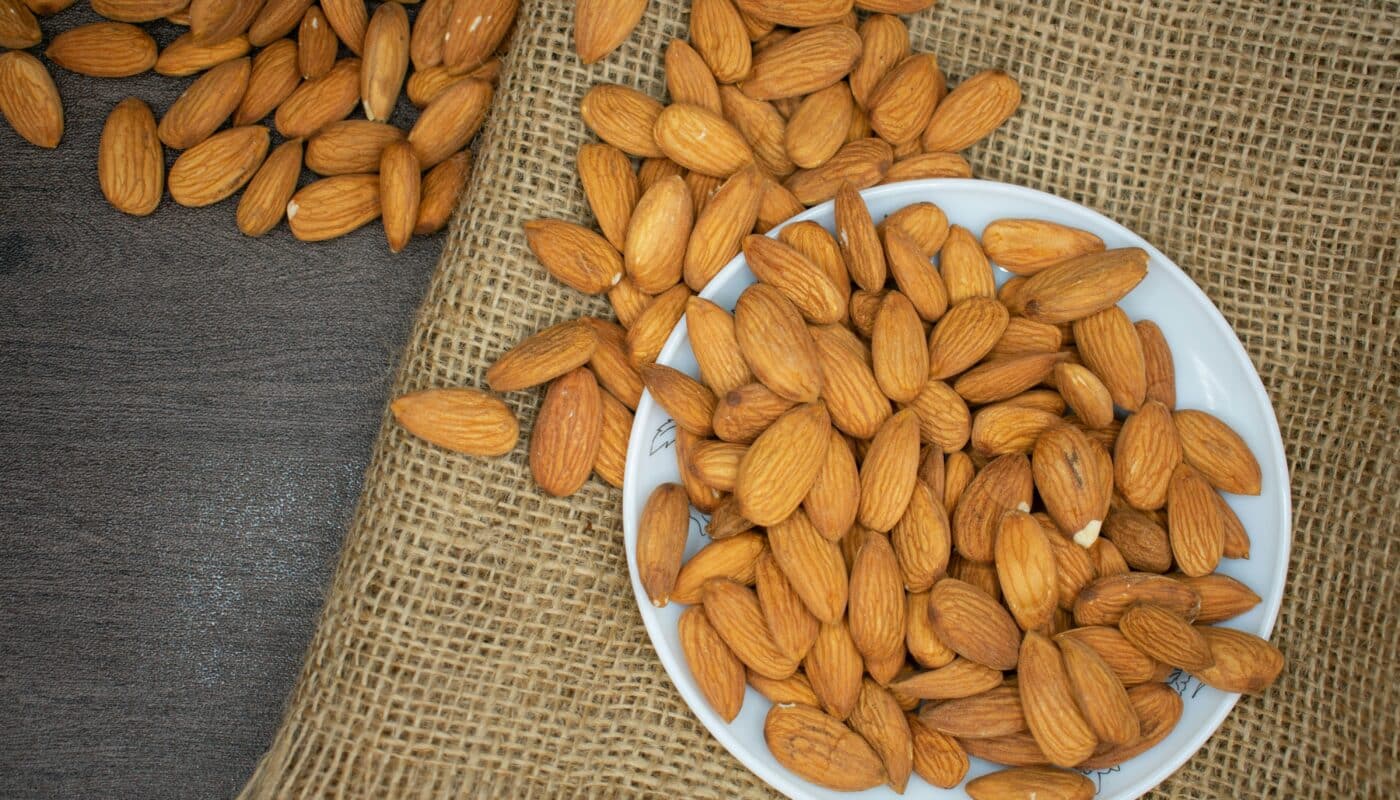What are the benefits of almonds after exercise? Their consumption is exploding today, not only because they are tasty, but also because they are packed with numerous nutritional and health benefits. Athletes are particularly fond of them, as these small nuts have been shown to be beneficial for their performance and overall well-being. In this article, you will discover all the reasons to eat almonds after exercise.
Almonds Promote Muscle Recovery
Much more than just a tasty snack, almonds possess considerable nutritional and caloric value. Rich in unsaturated fatty acids, they help meet the body’s essential nutrient needs. They are responsible for energy production and delivery to cells. These fruits therefore contribute significantly to reducing muscle tension and fatigue. After physical exertion, they act as effective pain relievers. Indeed, it has been demonstrated among cyclists, among others, that those who ate almonds after the ride experienced less muscle soreness.
Furthermore, almonds are a true source of plant-based protein. These nutrients promote the repair and rebuilding of damaged muscle tissue after training sessions. Note that a handful of almonds meets at least 10% of an adult’s daily protein needs. When the required amount is reached, it results in a reduction of inflammation and the prevention of muscle damage.
Almonds Improve Athletic Performance

Eating almonds after exercise helps increase muscle intensity. Indeed, these crunchy fruits are a significant source of energy. This is due to their high content of complex carbohydrates and healthy fats. These nutrients provide the body with gradual and sustained energy. This is why athletes who consume a serving before or after exercise are better able to maintain their energy levels. It’s important to know that when muscle strength increases, the athlete will also be able to progress to the next level, and so on. Furthermore, thanks to the antioxidants present in almonds, such as vitamin E, muscles are protected against damage caused by free radicals. This phenomenon occurs naturally during exercise. Therefore, by consuming almonds after exercise, the risk of muscle damage is minimized and the athlete can safely optimize their performance.
Almonds are conducive to well-being and health
In addition to protein, almonds are also rich in fiber. Consuming them regularly is therefore beneficial for digestion and intestinal transit. They are also an excellent source of vitamins and minerals, such as magnesium, potassium, and phosphorus, making them an essential ally for muscle and nerve function, as well as bone health. Note that these nutrients help reduce stress and anxiety. This is because they are the oilseed richest in magnesium. Another health benefit of almonds is that they regulate blood sugar levels, lower cholesterol, and promote cardiovascular health. Some studies have even shown that their consumption prevents the onset of certain cancers. Being a significant source of iron, they also promote oxygen transport throughout the body.
In terms of energy value, a 100g serving of almonds can cover a significant portion of an athlete’s needs, namely:
1/4 of their calcium, zinc, and potassium needs;
1/2 of their phosphorus and magnesium needs;
2/3 of their vitamin B2 needs;
15% of their iron intake;
100% of their daily intake of copper, vitamin E, and manganese.
However, it is important to moderate your consumption of these oilseeds and seek professional advice if necessary, as they are very high in calories.
How to consume almonds?
When participating in regular sports, the benefits of almond consumption depend on the right amount, combined with a healthy lifestyle. After physical exertion, consuming almonds alone will not provide all the expected benefits. It is essential to stay well hydrated and get as much rest as possible. A balanced diet should also be part of your workout routine, both before and after training.
What type of almonds should you eat? Almonds are available in different forms. They can be powdered, pureed, in the shell, coated, slivered, or whole. You can also find dried fruits in grocery stores, with or without skin, and from organic or conventional farming. If you plan to consume them regularly, I recommend choosing almonds with brown skin, without any additives. This intact, unprocessed state allows you to retain
the nutrients and flavors they naturally contain. Similarly, if you opt for pureed almonds, choose varieties without salt, sugar, or oil.
What is the ideal quantity?
Since almonds are very high in calories, excessive consumption can lead to significant weight gain. Therefore, be careful and avoid exceeding 30g, or the equivalent of about 20 seeds.

How to include them in your diet?
Almonds should be eaten whole and uncooked immediately after exercising. You can also vary the flavors by adding them to a bowl of oatmeal or to salads, meat, or fish, lightly seasoned with cream cheese. You can also consume them in milk or crumbled in yogurt.
In conclusion, almonds are a tasty and nutritious food that, in addition to being a delight for the taste buds, offers numerous benefits for athletes. Thanks to all the essential nutrients they contain (protein, fiber, vitamins, and minerals), they promote muscle recovery after exercise, improve physical performance, and maintain good health.


